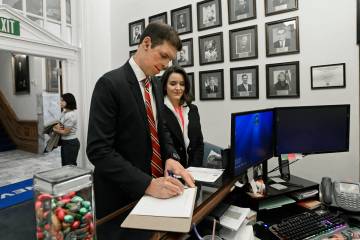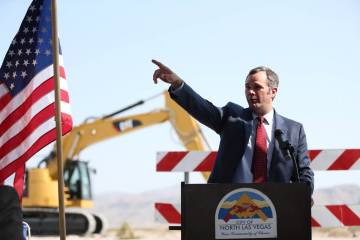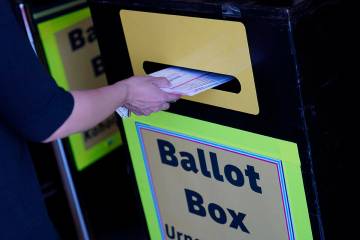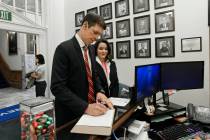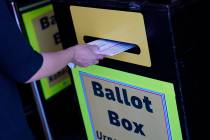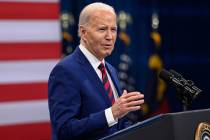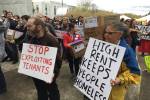NPRI’s Robert Fellner talks about transparency, pensions
Nevada’s Public Employees’ Retirement System is still fighting a Supreme Court decision requiring them to turn over public pension records. That’s just one example of why Nevada’s public records law needs to be strengthened by including a penalty. That’s according to Robert Fellner, director of policy for the Nevada Policy Research Institute.
NPRI successfully sued PERS for the release of those records, which Fellner said taxpayers deserve to see, because the public backstops any investment losses.
“When [PERS’] investment earnings fall short, taxpayers are the ones left holding that bag,” Fellner said while filming Nevada Politics Today. “With pensions there’s an even greater interest in transparency than salaries, because it’s so hard to understand how pensions work. If you keep this stuff hidden, nobody in the state is going to understand why their taxes keep going up.”
He continued, “It’s a huge taxpayer burden to fund these benefits. It costs about $2 billion a year. To put that in context that’s about half of the state general fund. That’s a massive, massive expense that the taxpayer bears.”
Those pension records will show that PERS has strayed far from its original mission, Fellner said. “The system, in many cases, is not operating as state law says it should or the system describes itself. State law, which created PERS, says the system was created to provide a reasonable base income for those who are no longer able to work due to old age or disability.”
That’s not happening, because PERS allows government employees to retire in their late 30s, collect a six-figure pension and work another job for decades. The system raises questions of “fairness and equity,” Fellner said, because private-sector workers face tax hikes to pay for benefits far beyond what they have.
“Look at the pension of those who worked the full career,” Fellner said. “That’s a little less than $70,000 a year. When one the top experts in the nation looked at this state by state, Nevada PERS was actually the richest of any public pension plan in the nation. If you want to translate that to what a private-sector worker would need in a 401(k), that’s like a private-sector worker having $1.3 million in their 401(k).”
Despite the Nevada Supreme Court ruling that pension payouts are public records, PERS has refused to produce the records NPRI seeks.
“They should disclose it,” Fellner said. “They’re still trying some other legal maneuverings to delay and even overturn that decision. We should know early next year. We’re optimistic.”
Fellner proposed a solution to government agencies, like PERS, that blatantly violate Nevada’s public records act.
“This is the easiest fix we’ll ever come across,” he said. “Just treat the public records law like every other law and include a penalty for those who break it. The law as written is very strong. It talks about the importance of a transparent and accountable government and giving public the right to access government records, but there’s no penalty mechanism.”
Fellner pointed out other problems with PERS, including rising contribution rates, which are “going up entirely to fund PERS’ past funding failures, to pay for debt. None of this is benefiting the taxpayers who have to pay for it. None of it is benefiting the public employees who have to pay these higher rates, because their benefits have not increased. In fact, they’ve gone down for new hires since 2015. It’s all going towards what I would consider to a broken governance system.”
Fellner noted that it is illegal for private employers to run a pension system like how Nevada runs PERS.



